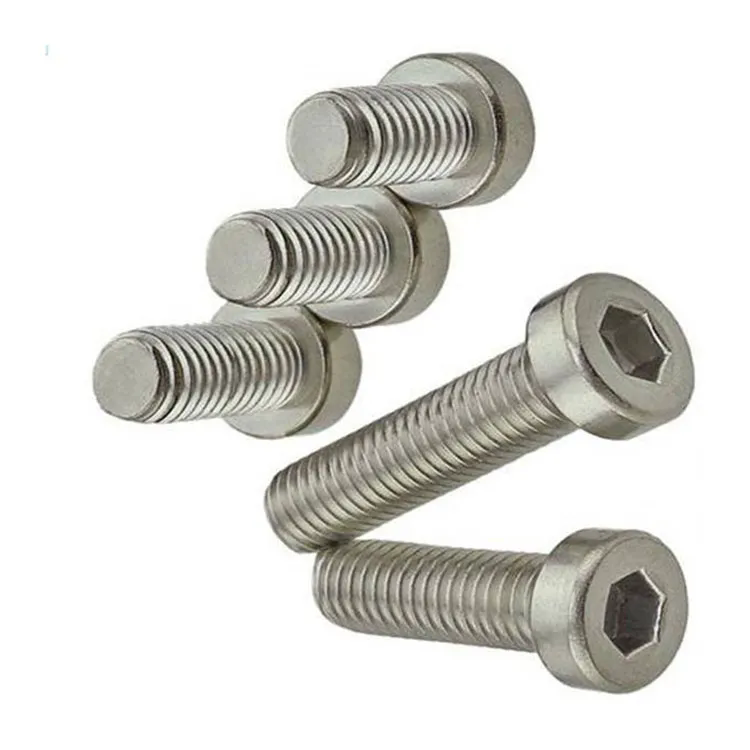Screws: The Unsung Heroes of Construction and Everyday Life
2024-12-04
Screws are everywhere, holding the world together—quite literally. From furniture assembly to large-scale construction projects, screws play an essential role in providing strength, durability, and precision. Despite their humble appearance, these small fasteners are indispensable in countless applications. In this blog, we’ll dive into the types of screws, their uses, and tips for choosing the right screw for your needs.
What Are Screws?
A screw is a mechanical fastener with a helical ridge, or thread, wrapped around a cylindrical shaft. Screws are designed to create secure connections by embedding themselves into materials, holding them together through friction and compression.
Types of Screws and Their Uses
1. Wood Screws
- Purpose: Ideal for woodworking projects.
- Features: Sharp points and coarse threads to grip wood securely.
2. Machine Screws
- Purpose: Used for metal and machinery.
- Features: Fine threads designed to fit pre-threaded holes or paired with nuts.
3. Sheet Metal Screws
- Purpose: Perfect for securing metal sheets or attaching them to other materials.
- Features: Self-tapping threads that cut into the metal.
4. Deck Screws
- Purpose: Commonly used in outdoor decking projects.
- Features: Coated to resist corrosion and weathering.
5. Drywall Screws
- Purpose: Secure drywall to wooden or metal studs.
- Features: Bugle-shaped heads and fine threads for smooth installation.
6. Lag Screws
- Purpose: Heavy-duty fasteners for structural applications.
- Features: Thick and strong, often used for securing heavy wood or concrete.
7. Self-Drilling Screws
- Purpose: Used in construction for metal or composite materials.
- Features: Built-in drill tips that eliminate the need for pre-drilling.
8. Specialty Screws
- Purpose: Designed for specific tasks, such as masonry screws for concrete or roofing screws for securing shingles.
Benefits of Using Screws
1. Secure and Reliable
Screws create strong connections that can withstand stress, vibration, and wear.
2. Reusability
Unlike nails, screws can often be removed and reused without damaging materials.
3. Versatility
With a wide variety of types and sizes, screws can be used for nearly any application.
4. Precision
Their threaded design allows for fine adjustments, ensuring a perfect fit.
5. Durability
High-quality screws are designed to resist rust, corrosion, and other environmental factors.
Tips for Choosing the Right Screw
1. Consider the Material
- For wood, choose wood screws.
- For metal or plastic, select machine screws or sheet metal screws.
2. Match the Environment
- Use corrosion-resistant screws, such as stainless steel or coated varieties, for outdoor projects.
3. Choose the Right Size
- Ensure the length and diameter of the screw fit the materials you’re fastening.
4. Select the Correct Head Type
- Flat Head: Sits flush with the material.
- Pan Head: Stands slightly above the surface.
- Phillips or Torx Head: Designed to prevent stripping during installation.
5. Check the Thread Type
- Coarse threads for wood.
- Fine threads for metal or precision work.
How to Properly Use Screws
- Pre-Drill Holes: For harder materials, pre-drilling can prevent splitting and ensure easier installation.
- Use the Right Tools: Match your screw head type with the appropriate screwdriver or drill bit.
- Tighten Correctly: Avoid over-tightening, which can strip threads or damage materials.
Conclusion
Screws might be small, but their impact is monumental. They provide the foundation for sturdy constructions, seamless assemblies, and lasting durability. By understanding the different types of screws and their specific applications, you can tackle any project with confidence.
Next time you hold a screw in your hand, take a moment to appreciate its engineering brilliance. This simple yet essential tool truly holds everything together!



